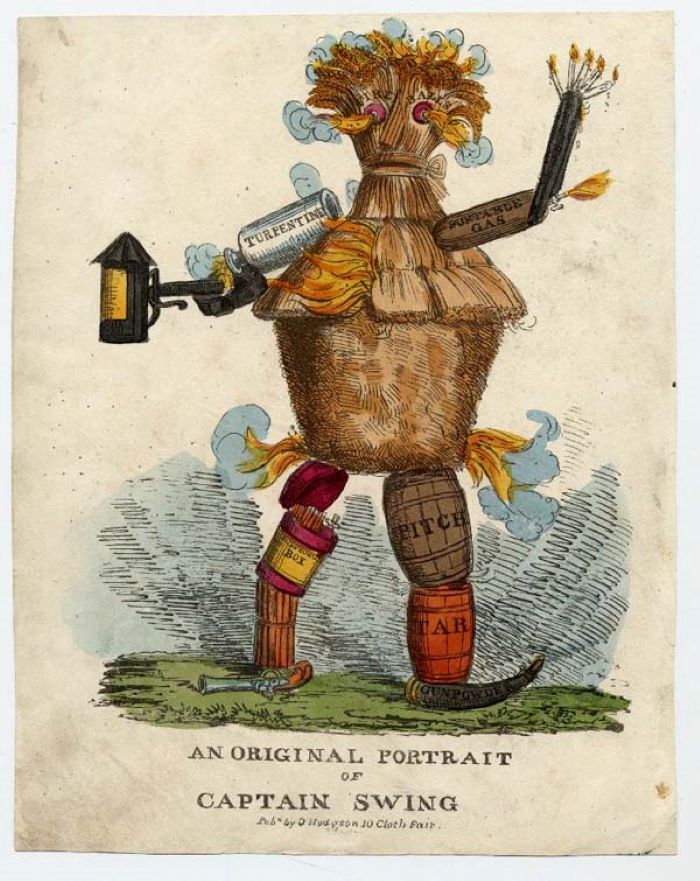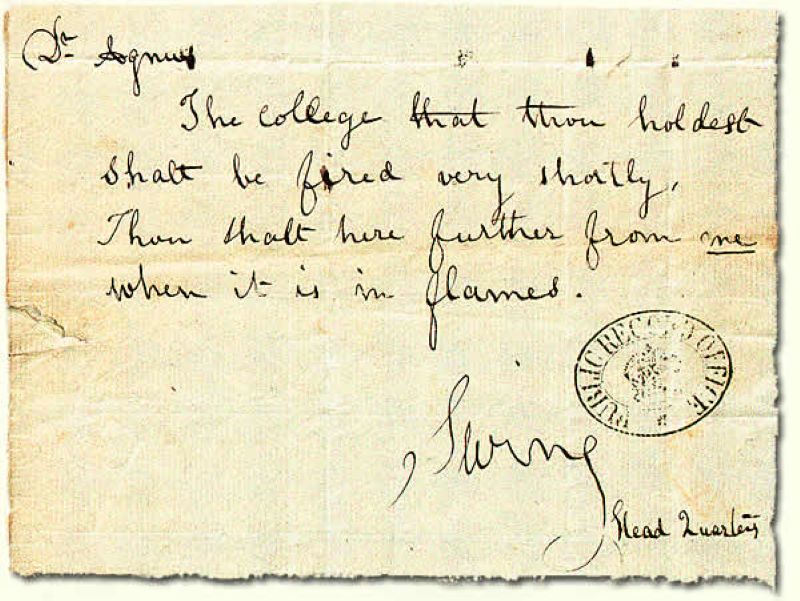
Almost two centuries ago rural rioters swept across the south of England smashing farm machinery and burning hayricks in protest at poor pay and conditions and the rise of mechanisation which threatened their jobs.
The Captain Swing Riots brought the grievances of the rural poor to the fore but were the voices of the rioters represented truthfully by official records, newspaper reports and letters of the time?
This year’s annual English Project lecture, entitled ‘Finding Captain Swing: voice, protest, and people in the 1830 riots’, will look at the sources which allow us to hear directly from the ordinary people involved.
The lecture, to be given at the University of Winchester by Professor Jane Hodson, will also look at how later works of fiction have also given the rioters a voice.
Jane is a Professor of English Language and Literature and Head of School at the University of Sheffield. Her research is concerned with ways language relates to issues of representation and power.
Named after the fictional Captain Swing, the rioters were responsible for one of the largest movements of social unrest in 19th-century England but are less well remembered than other agitators like the Luddites and Tolpuddle Martyrs.
In the run up to the 200th anniversary of the riots, the chair of the English Project Bill Lucas, Professor of Learning and Director of the Centre for Real-World Learning at the University of Winchester, is seeking to rekindle interest in Captain Swing.
This year it launched The Captain Swing Riots and the Grand Assize in Winchester of 1830.
 Example of letter sent during the Swing Riots. This was sent to Corpus Christi College, Cambridge in 1830. It says: "Dr Agnus. The college that thou holdest shalt be fired very shortly. Thou shalt here further from me when it is in flames. Swing Head Quarters."
Example of letter sent during the Swing Riots. This was sent to Corpus Christi College, Cambridge in 1830. It says: "Dr Agnus. The college that thou holdest shalt be fired very shortly. Thou shalt here further from me when it is in flames. Swing Head Quarters."
During November of 1830 more than 60 Hampshire villages saw rick-burning, the destruction of threshing machines, the pulling down of factories and Poor Houses, intimidation of farmers and clergy as well as theft and general disorder.
As a result, more than 300 ‘Swing Rioters’ were rounded and charged with a variety of crimes including attempted murder at an extraordinary ‘Grand Assize’ held over the Christmas period in the Great Hall in Winchester.
In the decade either of side of 1830 there were profound changes affecting society which the English Project will be exploring in a series of events culminating in 2030.
English Project chair, Prof Bill Lucas, commented: ‘Surprisingly few people have heard of Captain Swing, yet these riots were at least as significant as what happened with the Luddites or the Tolpuddle Martyrs. We hope to put this right. And we are thrilled that Prof Hodson will be shining a light on the language and literature of this extraordinary period of English history.’
To find out more about Professor Hodson’s lecture, which takes place at the West Downs centre Auditorium on 11 October, and to book tickets follow this link.
Back to media centre